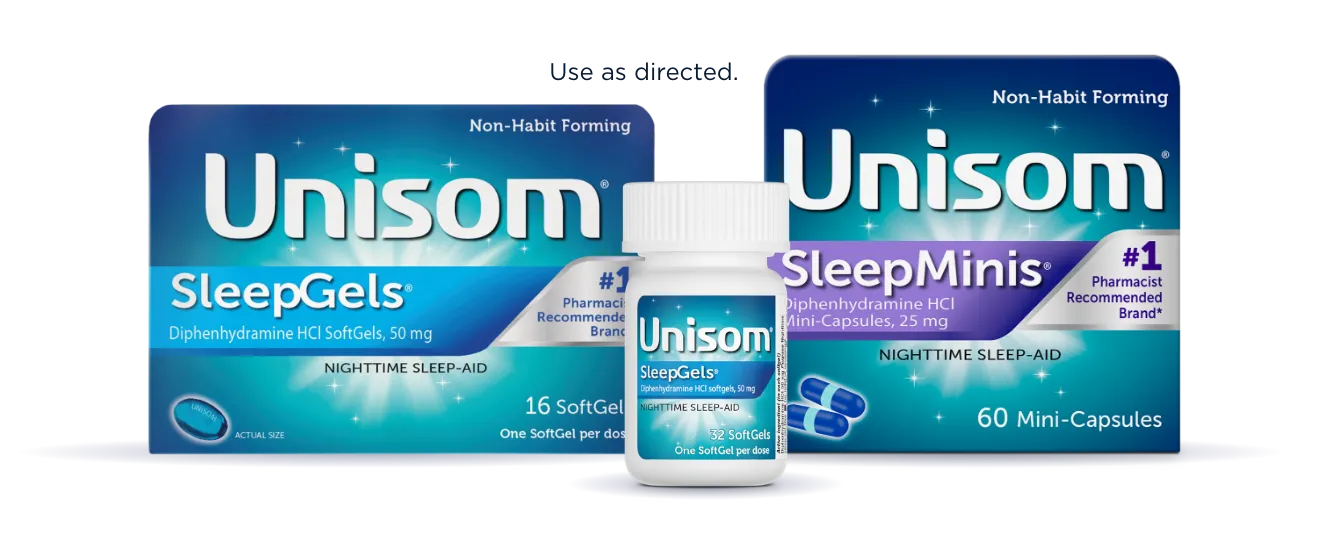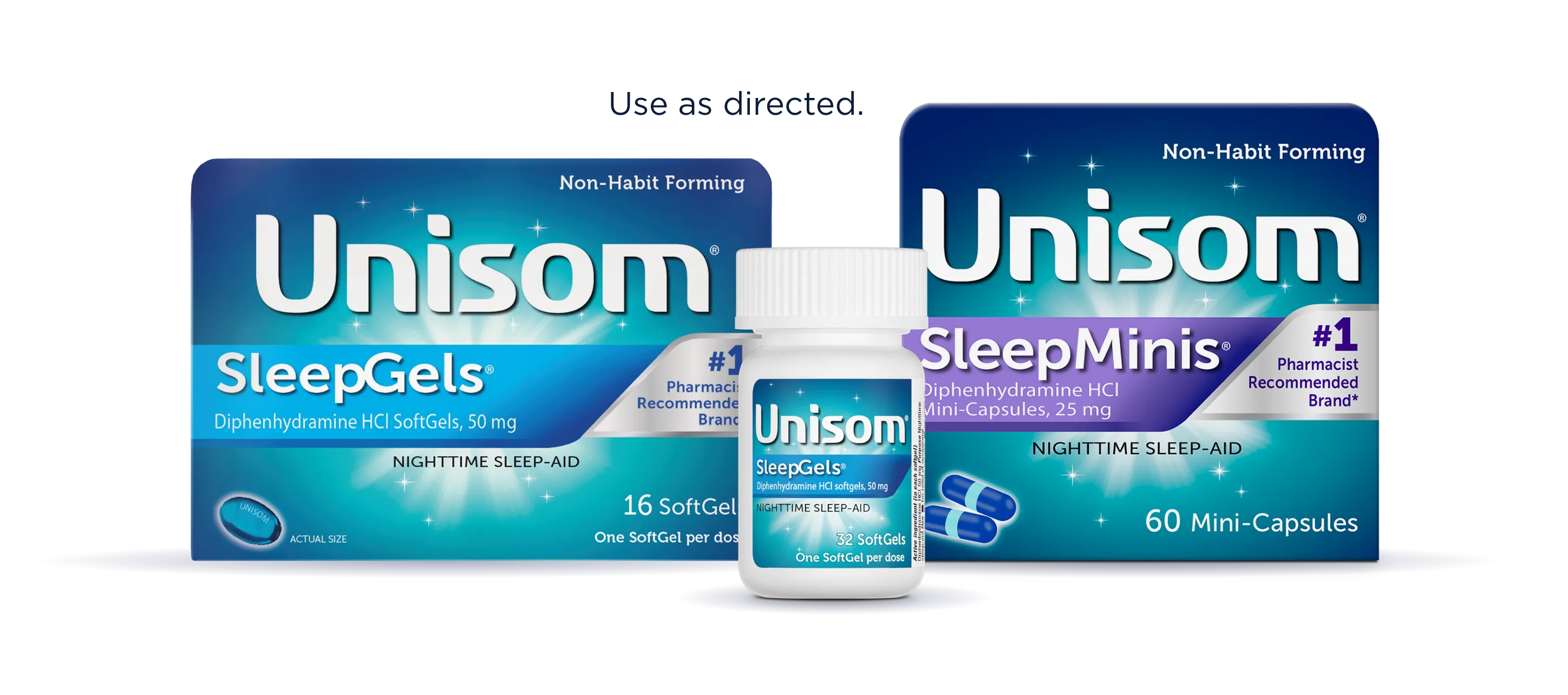Bodies have an internal clock that regulates sleep and wakefulness over a 24-hour period — this is referred to as a circadian rhythm.¹ This rhythm can get out of whack due to stress, travel, children, or other disruptions.¹ But it’s nothing to lose sleep over — there are lots of adjustments you can make to get back on a healthy sleep schedule.
About a day
Your body wants to keep a set schedule for sleeping, eating, and other biological functions. When things are running smoothly, this schedule is synched to a normal 24-hour period. “Circadian” means “about a day,” so the circadian rhythm is the daily schedule our bodies naturally follow.²
Bodies do a great job staying on track, but also rely on external signals like daylight, temperature, even exercise. These are the signals that tell your body to do things like sleep and eat.
When your biological clock gets out of alignment with the day-night cycle, over time you may run into an increased risk of obesity, diabetes, and depression.2 For ongoing sleep issues, consult a healthcare professional.

Light and dark
The circadian rhythm for some members of the animal kingdom is set so they can hunt at night when it’s dark, and sleep during the day when it’s light.2 But as humans, we're naturally wired to be awake during the daytime and sleep at night.1
Another factor in regulating our circadian rhythm is a hormone called melatonin. When it gets dark, your body naturally starts to make more melatonin, which makes you sleepy. And if you’re exposed to light at nighttime, melatonin production can slow down and keep you from falling asleep.3
Sleep schedule disruptions
Some disruptions that can impact your circadian rhythm include:
- Jet lag. Jet lag is defined as a “condition caused by disturbance to the body’s natural circadian rhythm, or internal clock.”4 If you’ve ever traveled across multiple time zones, you know that jet lag can make you feel out of sorts. Upon arrival, your internal clock is still on its home schedule and it usually takes a couple of days to adjust.1
- Sleep shift disruptions. This is most commonly associated with working an overnight shift, or with a significant change to a set work schedule. Asking your body to sleep during the day and stay awake at night forces a disruption to your natural rhythm.1
- Delayed Sleep Phase Syndrome. The night owls among us know the feeling of staying up until two or three, and then having to be bright-eyed and bushy-tailed for work in the morning. If your sleep pattern doesn’t sync with your work schedule it can be challenging to stay focused and awake during normal daytime business hours.1
- Advanced sleep phase disruptions. This is most common in the elderly, and involves feeling like you’re ready for bed around 7–8 p.m. Getting into this rhythm typically leads to waking up at 3–4 a.m.1
Common symptoms of sleep disruptions
Unlike jet lag, which is usually temporary, other sleep disturbances can last a few days. Other symptoms of circadian rhythm disorders can include:1
- Problems falling asleep
- Daytime sleepiness
- Headaches
- Difficulty concentrating
- Decreased cognitive performance
- Fatigue

How to navigate circadian rhythm disruptions
If you have occasional sleeplessness, a great first step is to consult your doctor, healthcare provider, or sleep specialist. They can help you explore both non-medicinal and medicinal options. These include supplements with melatonin, a hormone naturally created by the body that helps regulate sleep.1
Otherwise, simple lifestyle changes can be effective, such as getting more exercise and limiting naps.2 You might also consider getting away from the artificial light of smartphones and computers for a few hours before bedtime.2
Rest assured
If your circadian rhythm has lost the beat, sleep can become a real challenge. Unisom® is the #1 doctor recommended OTC sleep-aid, with a range of non-habit forming options to help you fall asleep and wake up feeling refreshed.
Unisom® SleepGels® contain the histamine blocker diphenhydramine HCl. Blocking histamine production can help you fall asleep faster and stay asleep.
Unisom® SleepTabs® contain doxylamine succinate, which is a clinical-strength histamine blocker that works in a similar fashion to diphenhydramine. Unisom® SleepTabs® can help you fall asleep 33% faster and get a full night's sleep.
Find the Unisom® product that’s right for you.
Professional References
1. American Sleep Association, Editors. Circadian Rhythm and Sleep. American Sleep Association (https://www.sleepassociation.org/)
2. National Sleep Foundation, Editors. Understanding Circadian Rhythms. The National Sleep Foundation (https://www.thensf.org/). December 3, 2020.
3. National Center for Complementary and Integrative Health, Editors. Melatonin: What You Need To Know. National Center for Complementary and Integrative Health (https://www.nccih.nih.gov/)
4. American Sleep Association, Editors. Jet Lag Treatment, Recovery and Symptoms. American Sleep Association (https://www.sleepassociation.org/)
Related articles
†This statement has not been evaluated by the Food and Drug Administration. This product is not intended to diagnose, treat, cure or prevent any disease.
.webp)




